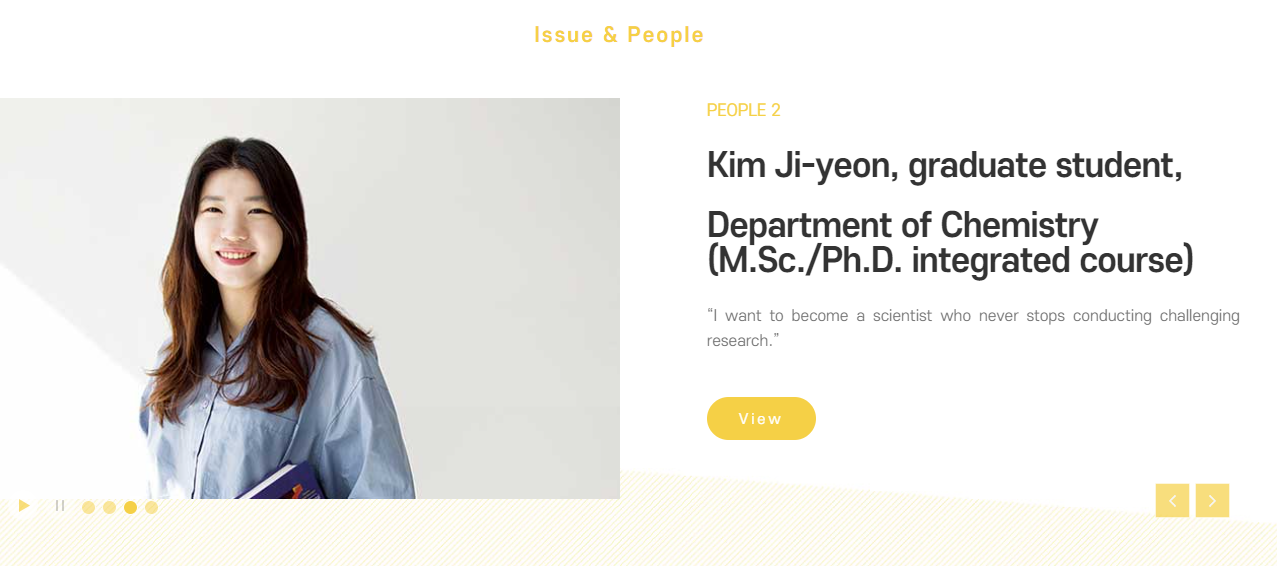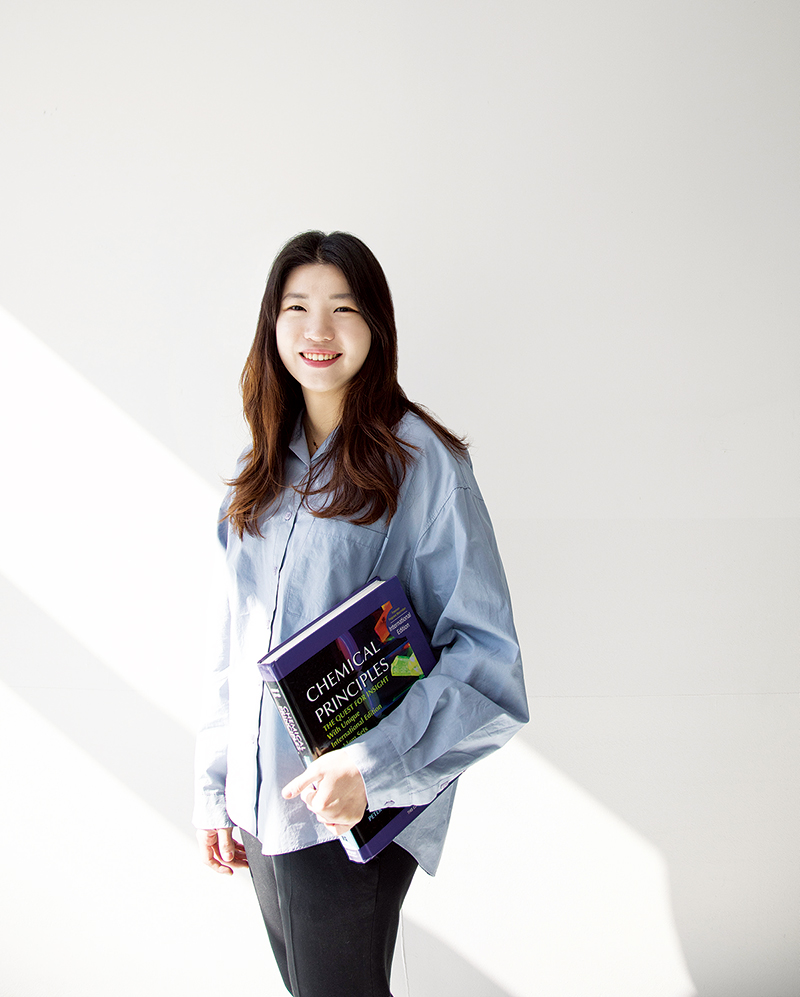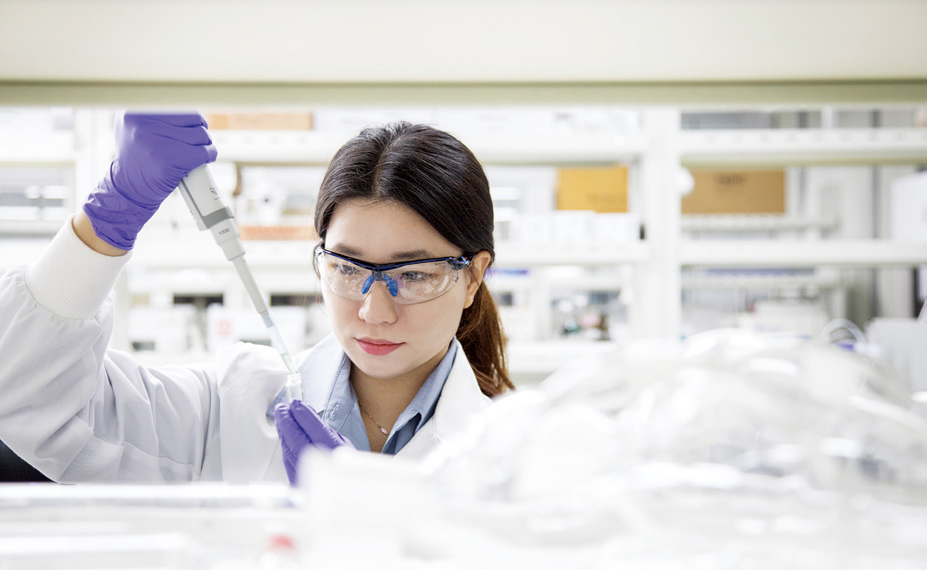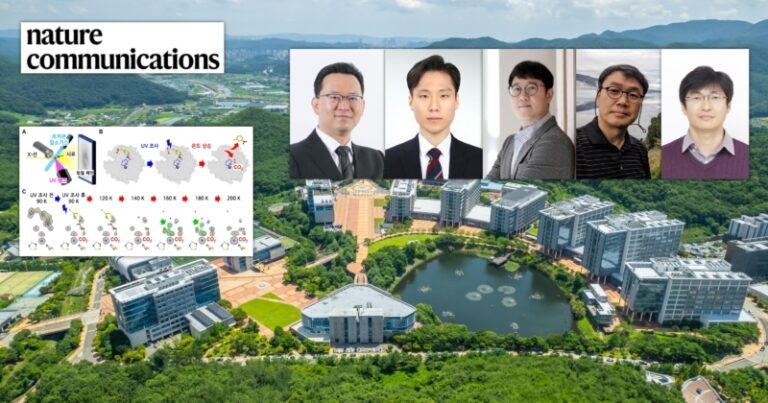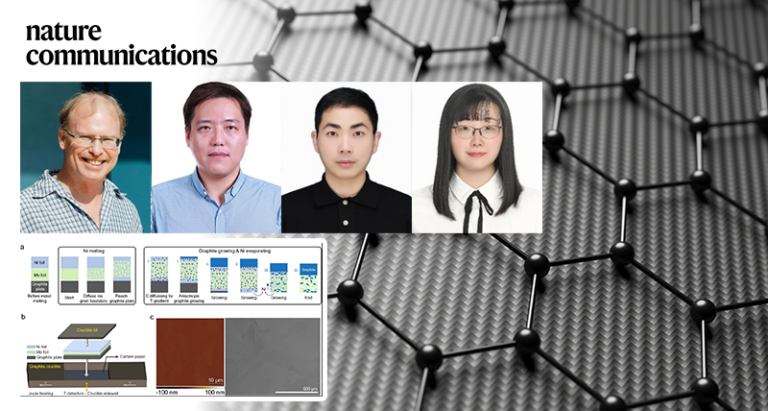A sense of achievement has a pure power that moves people. The higher the goal achieved, the higher the sense of achievement obtained, and the resulting power emits infinite energy. Kim Ji-yeon, a graduate student who took her first steps along the path as a novice researcher through the M.S./Ph.D. integrated course in 2017, gained momentum as a researcher early on by winning the Global Doctoral Fellowship in 2018 and the Korea Talent Award in 2022. It is why we look forward to observing her journey as a scientist.
A girl who dreamed of becoming an architect
The ‘environment’ is still a major topic among many scientists, and numerous studies and efforts are being made to lower the earth’s temperature. It is in this context that ‘porous material’ has attracted attention lately. In particular, the MOF (Metal Organic Framework), which Kim Ji-yeon is researching, is a skeletal structure that is formed by bonding metal ions with organic molecules, and can be used as a catalyst for producing hydrogen or for adsorbing carbon dioxide.
“A porous material literally means a material with many pores. For example, sponge, basalt, and styrofoam are leading porous materials. As the holes between molecules make up the substance, various materials can be absorbed or stored in the holes. The MOF that I am studying is a combination of metal and organic matter. We can adjust the size of the pores and increase the types of materials that can be stored infinitely depending on how we change the type of metal or organic matter or the bonding structure.”
Since the MOF is composed of an extended structure in which the components are continuously connected to coordinate bonds,* it has the advantage of creating a new structure and bond. It can be considered a kind of architecture made with molecules. It is because of these characteristics that Kim Ji-yeon first developed an interest in this field. “My childhood dream was to become an architect because I thought it was attractive that I could determine and build structures. It was so natural that I fell in love with the research of assembling invisible molecules and predicting the structure of the assembled molecules.”
Research born out of interest is more like ‘play’ than ‘work’. You get curious because you have an interest, and the process of getting to know a subject is fun. The fact that she was selected for the Global Ph.D. Fellowship the year after she started the integrated M.Sc./Ph.D. program and was able to lay the foundations for leading research is probably attributable to her deep enjoyment of her research.
* Coordinate bond: refers to a type of chemical bond in which one atom unilaterally provides an electron pair to form a bond. In other words, it is a bond formed when a ligand paired with an unshared electron (Lewis base) donates an electron pair to an electron-deficient cation (Lewis acid).
From Korea to the World and Beyond
At the end of last year, Kim Ji-yeon heard the good news: She had won the 2022 Korea Talent Award. Hosted by the Ministry of Education and supervised by the Korea Student Aid Foundation, the Korea Talent Award selects and awards 100 high school students, college students, and young people who have shown outstanding achievements in their chosen fields annually. Kim Ji-yeon received the award in recognition of her efforts to develop functional and porous materials with a new structure.
“I was selected for the award after an evaluation of a leading study that I’d presented, and the moment I went up to the stage to receive it, I felt the weight of the award. I was happy to be recognized for my research activities up to that point and was also determined to work harder to return the outcome of my research to society.”
Kim Ji-yeon has been developing her research capabilities by publishing papers as the first and co-first author in SCI journals. One of her papers, published in Chem, an international academic journal proposed a method of predicting and designing a future structure that can be synthesized, although not yet reported, through a topology-based analytical method for the self-assembly of building blocks constituting metal-organic polyhedrons. She also published a paper on research in which she checked the location of functional groups of multivariate metal-organic frameworks to which various types of chemical functional groups had been added, and then adjusted their arrangement, in Matter, an international academic journal on materials engineering.
“The strength of Professor Choi Won-young’s lab, which I belong to, is that we are not afraid of challenges. Professor Choi always tells me that autonomous and flexible thinking can produce new research ideas for solving the limitations of existing research. He wants us to continue asking questions about existing research and to explore things that are yet to exist in the world.”
Kim Ji-yeo said that she had experienced many failures in graduate school, where she was able to get closer to her dream. However, she has been able to come this far because she also had an experience in which the sense of accomplishment she felt at achieving a goal became the driving force for setting an even bigger goal. That is why she wants to challenge herself and work harder – even if it seems difficult.
“Doing challenging research keeps changing me. Trying to change is not easy. Nevertheless, I want to become a researcher of challenging subjects because I think it is valuable to contribute to the scientific development of mankind through excellent research. I will continue to grow into a healthy and confident scientist who can continue to give something valuable back to society.”
